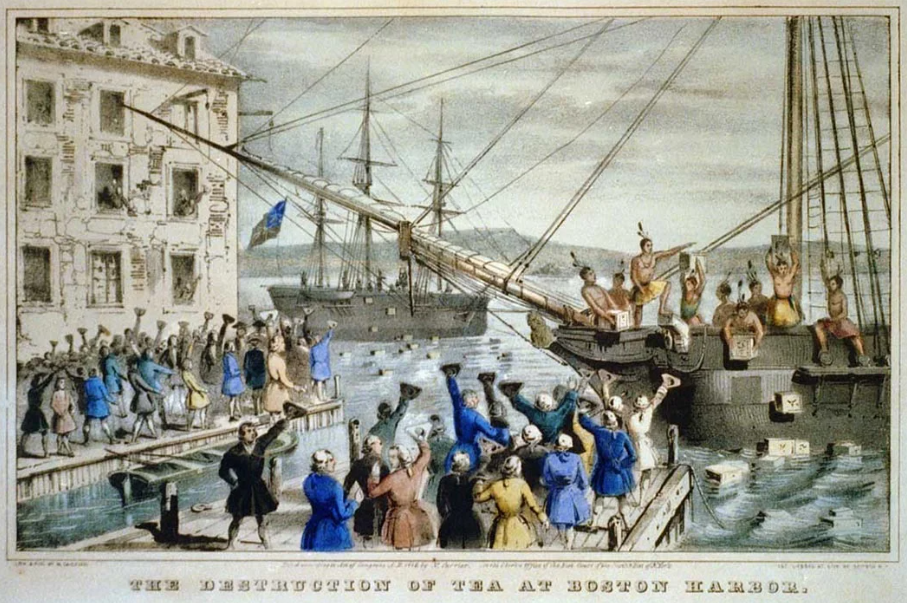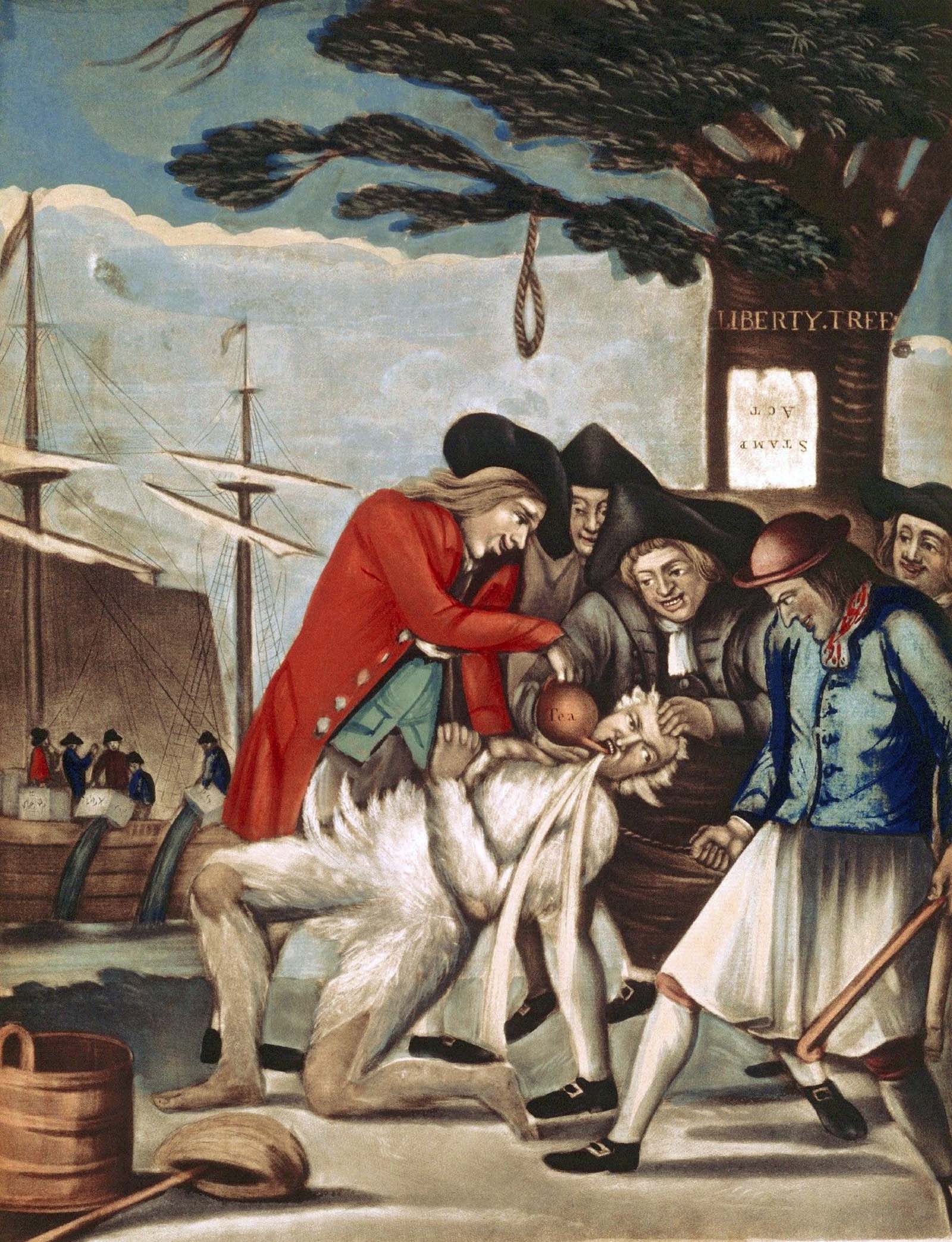Dalia Savy
J
James Glackin
AP US History 🇺🇸
454 resourcesSee Units
At first, the French were winning the French and Indian War against the British. Remember that once William Pitt became the Prime Minister of England, he reimbursed colonial assemblies for their costs, which raised colonial morale. In turn, the British began to win battles, and in the end, won the war.
One of the biggest consequences of the war was how much money it cost the British. How would they pay for these war debts? Increasing colonial taxes would seem to be a solution, but it would create both ideological and financial conflicts between the upstart colonists and the Royal Crown.
These conflicts all tie back to salutary neglect, the policy of the British government towards its colonies in North America in the seventeenth and eighteenth centuries. Under this policy, the government largely ignored the colonies and allowed them to govern themselves, with little interference from the mother country. This helped to foster a sense of independence and self-reliance in the colonies, especially with the recent Great Awakening. No wonder the colonists rose up after the British put an end to this policy.
British Laws and Policies
The policy of salutary neglect began to change in the mid-eighteenth century, as the British government began to take a more active role in regulating the colonies. This shift was driven by a number of factors, including the growing costs of the French and Indian War, the need to raise revenue, and the belief that the colonies were becoming too independent.

Image Courtesy of History.com
Some of the laws and policies that were implemented to raise revenue and regular trade in the colonies included:
- The Sugar Act of 1764: This act imposed taxes on sugar, molasses, and other products that were imported.
- The Quartering Act of 1765: This act required the colonists to provide food, shelter, and other supplies to British soldiers stationed in the colonies. The act was intended to help defray the costs of maintaining a standing army in the colonies and to ensure that the soldiers were properly cared for.
- The Stamp Act of 1765: This act imposed a tax on all printed materials, including newspapers, legal documents, and even playing cards. It was met with significant resistance from colonists in America, who argued that it violated their rights as Englishmen. This was a very triggering act for the colonists because of the ongoing print culture in the colonies.
- The Townshend Acts of 1767: These acts imposed taxes on a variety of imported goods, including glass, lead, paint, and tea. They were met with arguably the most resistance, as the colonists loved tea. Additionally, the revenues from this tax would help pay the despised British government officials within the colonies.
- The Tea Act of 1773: This act granted the British East India Company a monopoly on the sale of tea in the colonies and lowered the price of tea. It led to the famous Boston Tea Party, which we'll discuss soon, in which colonists threw crates of tea into the harbor to protest the tax.
- The Navigation Acts: These acts required that certain goods, such as sugar and tobacco, be shipped to Britain or its colonies on British-owned ships. They were intended to regulate trade and protect the interests of British merchants.
Overall, these laws and policies were a significant factor in the growing tensions between the colonies and the British government that eventually led to the American Revolution, which is what we are building up to in this unit.
🎥Watch AP U.S. History teacher Caleb Lagerwey talk about some of the key documents that were involved in the foundations of the American Revolution.
Colonial Reactions
No Taxation Without Representation
"No taxation without representation" was a slogan that was widely used by colonists to protest against British taxes and policies. It was based on the idea that the colonists should not be taxed by the British government unless they had representatives in Parliament who could advocate on their behalf.
The slogan was first used during the Stamp Act crisis of 1765 when the British government imposed a tax on all printed materials in the colonies. The colonists argued that the tax was unjust because they did not have any representatives in distant Parliament that controlled them and therefore had no say in how they were taxed.

"The Destruction of Tea at Boston Harbor", lithograph depicting the 1773 Boston Tea Party
The colonists created the Stamp Act Congress of 1765, which demanded the king repeal the tax. Parliament eventually did just that to temporarily appease the colonists.
The Nonimportation Agreement
A handy colonial protest tool was the nonimportation agreement. It was a boycott of British goods, such as wool and linen, that was implemented by the colonists as a way to protest British policies.
The agreement called for the colonies to stop importing a wide range of goods from Britain, including textiles, clothing, and other manufactured products. The colonists also agreed to stop exporting certain goods, such as tobacco, to Britain.
Groups such as the Sons of Liberty would enforce these boycotts. The Sons of Liberty was a secret society formed by several prominent leaders such as Samuel Adams, Paul Revere, and John Hancock that played a role in the events leading up to the American Revolution. This group was formed to protect the rights of colonists and resist British control through boycotts, protests, and intimidation.
The Daughters of Liberty was a group of women who supported the cause of independence and worked to further the goals of the Sons of Liberty. The Daughters of Liberty organized boycotts of British goods and provided support to the patriots in other ways, such as by spinning and weaving cloth to replace imported fabrics.
Tarring and Feathering
Violent protests by groups like the Sons of Liberty created quite a stir both in the colonies and in England itself. While extreme acts like the tarring and feathering of Boston’s Commissioner of Customs in 1774 propagated more protest against symbols of Parliament’s tyranny throughout the colonies, violent demonstrations were regarded as acts of terrorism by British officials.
Tarring and feathering is a form of public punishment or torture that was used in the past to shame and punish people for various crimes or offenses. It involved covering a person's body with tar, a thick, black substance, and then covering the tar with feathers. The tar would stick to the person's skin and clothing, making it very difficult to remove.
This print below of the 1774 event was from the British perspective, picturing the Sons as brutal instigators with almost demonic smiles on their faces as they enacted this excruciating punishment on the Custom Commissioner.

Philip Dawe (attributed), “The Bostonians Paying the Excise-man, or Tarring and Feathering,” Wikimedia.
The Boston Tea Party
The Sons of Liberty also staged the most profound protest in Boston's harbor: The Boston Tea Party. On the night of December 16, 1773, a group of colonists, disguised as Native Americans, boarded three British ships that were docked in Boston Harbor and threw 342 chests of tea shipped by the British East India Company.
The protest was in response to the Tea Act and was one of the first acts of open defiance by the colonists against British rule and helped to galvanize the independence movement. It caused the Parliament to punish Boston and the colony of Massachusetts severely.
The First Continental Congress
Finally, the reaction of Parliament caused a response by the colonists. Most of the colonies decided to meet in Philadelphia in 1774 as part of the First Continental Congress. Here, the colonists discussed ways to solve their grievances and petitioned Parliament.
They created a colony-wide Committee of Correspondence and sent a polite letter to King George III explaining their dissatisfaction, emphasizing their loyalty.
Browse Study Guides By Unit
🌽Unit 1 – Interactions North America, 1491-1607
🦃Unit 2 – Colonial Society, 1607-1754
🔫Unit 3 – Conflict & American Independence, 1754-1800
🐎Unit 4 – American Expansion, 1800-1848
💣Unit 5 – Civil War & Reconstruction, 1848-1877
🚂Unit 6 – Industrialization & the Gilded Age, 1865-1898
🌎Unit 7 – Conflict in the Early 20th Century, 1890-1945
🥶Unit 8 – The Postwar Period & Cold War, 1945-1980
📲Unit 9 – Entering Into the 21st Century, 1980-Present
📚Study Tools
🤔Exam Skills
👉🏼Subject Guides
📚AMSCO Notes

Fiveable
Resources
© 2025 Fiveable Inc. All rights reserved.